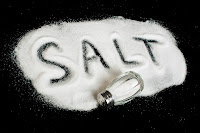Biblical kosher versus Talmudic kosher
Biblical kosher versus Talmudic kosher
Solomon D. Stevens has a Ph.D. from Boston College. His publications include “Religion, Politics, and the Law” (co-authored with Peter Schotten) and “Challenges to Peace in the Middle East.”
Solomon D. Stevens | Special to JT
An Orthodox friend recently reprimanded me for wearing my kippah to a restaurant, which he deemed to be non-kosher.
I always wear my kippah. I want non-Jews to know that there are Jews in the world who are proud about who they are and not afraid to be recognized as Jews. But beyond that, I believe that I keep kosher. I just don’t keep Talmudic kosher. For the Orthodox, there is only one standard of what is or is not kosher. I disagree, and I think this is worth discussing.
Most of my Orthodox friends think that the main reason that their non-Orthodox friends do not keep their version of kosher is that they are not fully committed to a religious life. A smaller number of my Orthodox friends think that some Jews are just lazy; they don’t want to take the trouble to keep kosher in the way that the Orthodox do.
These Orthodox friends are quite right in some, but not all, of these instances. I cannot deny that some people are secular, and some are just lazy. But for others like myself, it is more complex, and that is what I believe needs a fair hearing.
For me, the issue is how one understands revelation. I am a religious Jew and not lazy, but I simply have not been able to accept the position that the Oral Law is divinely revealed. In order for this to be the case, it had to have been revealed at Mt. Sinai when the Written Law was revealed and then passed down from generation to generation without corruption until it was finally put into writing as the Talmud. I am still open to an argument that can make this credible for me, but I have yet to hear it.
I understand that for Orthodox Jews, there really isn’t a clear distinction between the Written and Oral Law. The Talmud attempts to provide authoritative interpretations of the Written Law; but my contention is that reasonable people can disagree about this. If the Talmud is not divinely revealed, then its interpretations of the written law are interesting and helpful, but not authoritative.
What does this mean in practice? I have never boiled/cooked a kid in its mother’s milk (Exodus 23:19, 34:26, and Deuteronomy 14:21). I see how this prohibition could be linked to concern about cruelty to animals and the need to respect the relationship between children and parents, but I find it a stretch for the Orthodox to conclude from the Talmud that milk and meat can never be eaten together.
This prohibition is also extended to include eating milk and non-milk producing chickens. I understand a desire not to invite people to sin, or not to confuse non-Jews who might see someone eating milk and chicken together. Fine. What I have not been able to accept is that this becomes law because the Talmud proclaims it to be so. A need for separate plates, silverware, and sinks is, in my opinion, a reasonable interpretation of Torah, but not binding. I do not condemn anyone for separating milk and meat, but if the Talmud is not divinely revealed, then its reasoning is worthy of study but not the final word.
In addition, the prescribed method of kosher slaughter of meat, shechita, does not appear in the Torah. It is derived from interpretations of a number of passages in the Torah, but it is only interpretation if the Talmud is not divinely revealed. I only eat land animals that chew their cud and that have split hooves, but today there are very legitimate questions about whether the methods described in the Torah are actually the least painful for the animals that are slaughtered. So what do we do? The Orthodox are bound by what they accept as laws articulated by the Talmud. At this point, that is not enough for me.
I am only a Jew who wants to live a Jewish life in the best possible way. I am a scholar, but I am not a Biblical or Talmudic scholar. I can only live my Jewish life to the best of my ability. I accept the possibility that I could be very wrong when I make a distinction between Biblical kosher and Talmudic kosher. I am open to being instructed by those who are wiser than I. But it hurts and offends me when my Orthodox friends assume that my approach to the kosher laws means that I am either secular or lazy. May Hashem guide us all.
Solomon D. Stevens has a Ph.D. from Boston College. His publications include "Religion, Politics, and the Law" (co-authored with Peter Schotten) and "Challenges to Peace in the Middle East."


Comments
Post a Comment